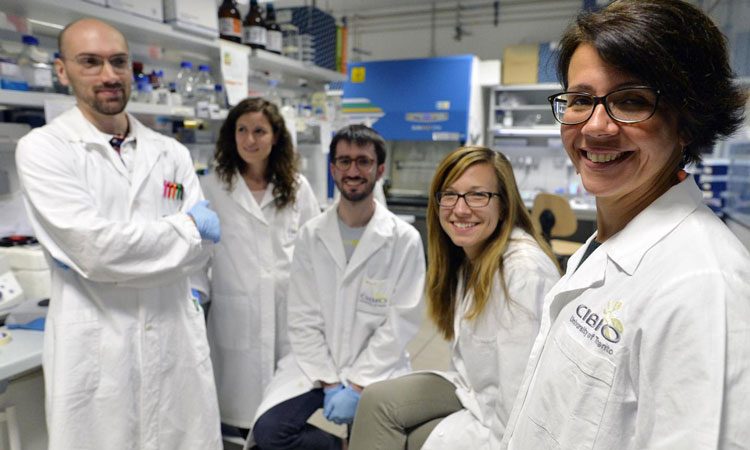CRISPR-Cas used to edit cystic fibrosis gene mutations
Posted: 8 August 2019 | Rachael Harper (Drug Target Review) | No comments yet
A research team have used genome editing to correct two of the mutations that cause cystic fibrosis.


This is the research team @Cibio with Giulia Maule and p.i. Anna Cereseto (credit: Alessio Coser @UniTrento).
Led by Anna Cereseto, a research team from the University of Trento have used genome editing to permanently correct two of the mutations that cause cystic fibrosis which opens new perspectives in the treatment for the disease.
The research team (in collaboration with KU Leuven) adapted the CRISPR-Cas system to permanently edit at least two types of the mutation that cause cystic fibrosis. The technique is called ‘SpliceFix’ because it fixes the gene and restores the protein production mechanism at the same time.
“We have devised a genome editing strategy based on CRISPR-Cas to permanently remove two different mutations that cause the disease,” said Giulia Maule, a doctoral student in Biomolecular sciences at the University of Trento and first author of the article. “CRISPR-Cas works like a genomic scalpel to cut out the mutated elements with extreme accuracy. We demonstrated that our repair strategy works on patient-derived organoids and with a high level of precision: it targets only the mutated sequences, leaving non-mutated DNA untouched.”
“Instead of animal models, we have used organoids that we developed from the patients’ cells, a choice that allowed us to verify the efficacy of the molecular strategy in a context that is very similar to that of the patients with cystic fibrosis,” Maule underlined.
The results of the study were published in Nature Communications.
Related topics
CRISPR, Disease Research, Genome Editing, Research & Development
Related conditions
Cystic fibrosis
Related organisations
KU Leuven, University of Trento
Related people
Anna Cereseto, Giulia Maule







